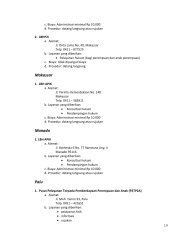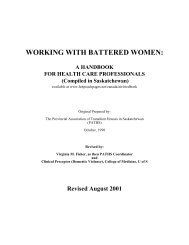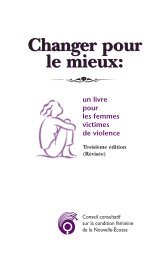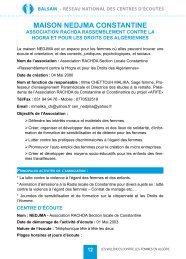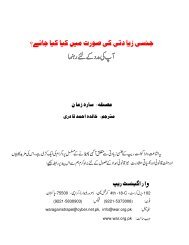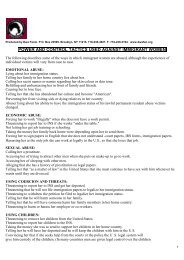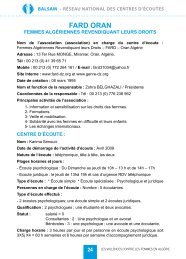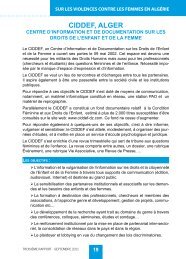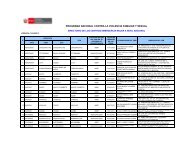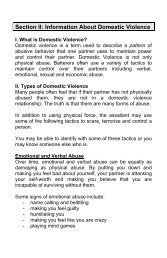Domestic Violence Counseling Manual - Hot Peach Pages
Domestic Violence Counseling Manual - Hot Peach Pages
Domestic Violence Counseling Manual - Hot Peach Pages
Create successful ePaper yourself
Turn your PDF publications into a flip-book with our unique Google optimized e-Paper software.
• The victim attempts to stay out of the abuser’s way and do whatever she can to keep him calm -<br />
this is often referred to as walking on eggshells. She assumes responsibility for his anger and<br />
denies that the incidents get progressively worse.<br />
Phase Two; Explosion/ Serious violence<br />
• The tension culminates into serious violence - this can be one incident or several.<br />
• While the woman may be able to recall the battering incident in detail, the man cannot.<br />
• It is unknown why the batterer stops the battering; he seems to know how to prolong the battering<br />
without killing his target.<br />
• In some relationships the woman is able to tell when the violence is likely to occur and can leave<br />
if she has a safe place to go.<br />
• The abuser feels a release of stress after he has been violent. This feeling becomes addictive and<br />
causes him to repeat the cycle when he is next under a lot of stress.<br />
Phase Three; Honeymoon period<br />
• Some men are resourceful, loving and kind. He is usually afraid that his partner will leave him<br />
and so tries to convince her and himself that he will change.<br />
• The man plays dependent and falls apart without her, and she feels responsible for her<br />
victimization.<br />
• The woman finds it difficult to leave at this point because she wants to believe him and because<br />
this period of the cycle reminds her of the good times that they used to have, and that can be had.<br />
• In Belize, some women feel that violence from their partner shows that he loves her; this<br />
honeymoon phase could help explain why.<br />
WHY DOESN’T SHE LEAVE<br />
Assuming the abused person is an adult and has the, theoretical at least, possibility to leave the person that<br />
is abusing her, it is important to understand the emotional, mental, practical, and economic reasons why<br />
the abused person might not leave. These include that she:<br />
• Loves the abuser<br />
• Believes that abuse is a sign of love<br />
• Is confused by what loving her partner entails<br />
• Believes the abuser when he says it won’t happen again<br />
• Hopes that the abuser will change<br />
• Is persuaded by the “honeymoon” stage of the cycle of violence that the relationship is<br />
worthwhile/ meaningful<br />
• Does not want to split the family up<br />
• Figures that a violent husband/ father is better than no husband/ father at all<br />
• Is ashamed to admit she’s being abused<br />
• Is unaware of her legal right to protection under the 1992 <strong>Domestic</strong> <strong>Violence</strong> Act<br />
• Does not have anywhere else to go<br />
14-56



